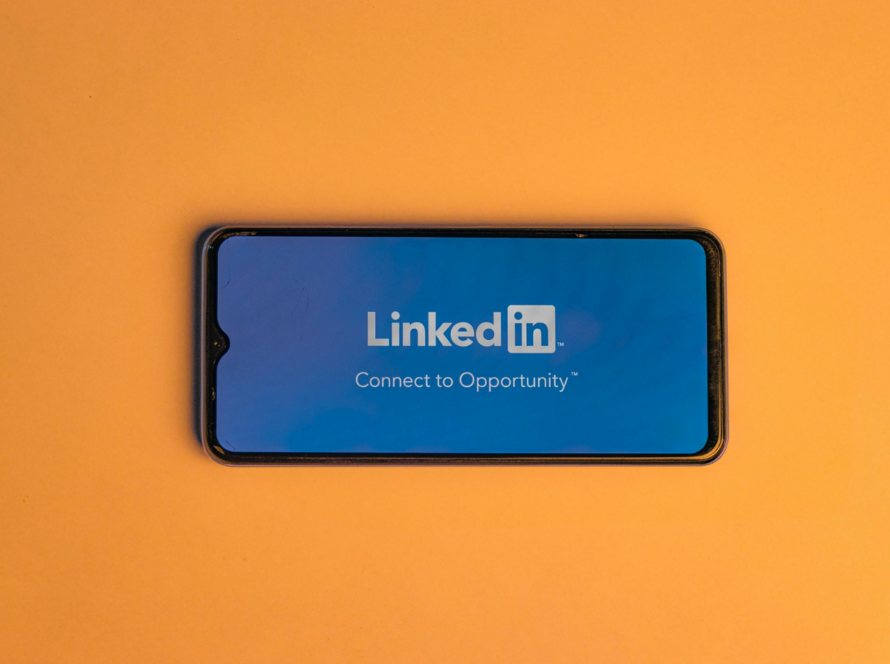When a background in news and social media come together, you get a unique combination for marketing businesses.
Our own Julie Holton, Owner and Principal Strategist of mConnexions, took this unique combination of skills and made the transition from Emmy award winner to one of our region’s top ten leaders to watch, for her marketing work.
Listen in as she shares with Paul Schmidt of Uno Deuce Multimedia, what it was like moving from news broadcasting to marketing, along with her thoughts on social media and the role it plays in our world today.
VIDEO TRANSCRIPT
Paul: And then you moved to lawyers! What’s interesting to me is that you worked at the law firm as the marketing and communications director. How were you able to sell yourself into that role coming out of news broadcasting?
Julie: I think one of the biggest selling points was that I had worked on the other side of the media. Who better to sell your story to the media and get you that media coverage than someone who was on the receiving end and deciding on those stories. Also, I’ll speak for my other fellow journalists out there, there are a lot of transferable skills. Every single day, you are interviewing, problem solving, making critical decisions at the height of deadlines. SO, I really think that any journalist brings a lot to the table when it comes to making a career transition, especially in a communications field.
Julie: I think the law firm was a really good fit for me. For me, it was a relatively easy transition because I was used to covering stories as a news producer where there’s a lot of explaining to do. I knew how to do that. We are governed by our laws! So, law firms need that thought leadership, and experts to bring down to layman’s terms what’s happening and how it affects all of us.
Julie: The other thing I brought to the law term was my social media knowledge. I worked in newsrooms when social media became huge, so I had that experience. I remember having editorial meetings at Faser where we would look at these social media platforms, and we were trying to figure out how to use these platforms and how to incorporate them into the marketing plan. We quickly figured out that we should be breaking news on Facebook and selling our personality on Facebook. So, taking Fraser’s Facebook presence from what it was then and making it into what it is now was really neat. We were actually using it for business purposes and branding, and selling our products and services. That was something, at the time, that the firm really needed, and I was able to bring that to the table.
Paul: You’ve really hit on theme of stories up to this point. How did your story change when you went to going from working to produce information for an entire community as a whole, to working to produce information for a small legal community. How did you shape your story there?
Julie: It’s going to sound like I am making this up, but it’s true–I felt like I was still helping the community. I worked with excellent attorneys who really care about their clients and their community: they give back, do pro-bono work, and are really involved in many ways. In a way I felt like we had a responsibility to give back to the community. The firm and its team have all this expertise and knowledge, and there are people out there who need it. So, I wanted to figure out how we could connect the two together. At the same time, it organically helps to grow the business of the practice of law, which is what my job was, and what I was tasked to do. So for me, it was a relatively easy transition. The hard part was the first week–suddenly I had my own office and I wasn’t in a newsroom with tons of people around and tons of noise. I would sit in my office in silence and think, “What do I do with this silence and without people everywhere?!” That was a strange transition during the first few weeks.
Paul: Were there times where you felt like you to battle the negative stigmas some people may have about lawyers?
Julie: I know, kind of like how they do with the media, right? I just moved from one stigma to the next! Luckily, I didn’t really have to face problems about the lawyer stigma that much. I think it was because I was fortunate enough to work at a law firm that has been in Lansing for over 135 years and has a strong reputation.
Paul: How do you really feel about social media?
Julie: That is a good question–that is a loaded question! My dad likes to joke and complain about Facebook and I have to remind him, “Dad, I make money off of Facebook now, and by helping businesses with social media.” It’s tough! With our generation, we remember what life was like before social media, and life has changed since then.
Julie: I have differing opinions on it: it has definitely changed society in many ways. It has changed everything from how people communicate to how people date. You name it, it has changed so much. I don’t know that all of the change is for the better, but there isn’t much we can really do about it. So, in general, I think we have to be smart about connecting with people face-to-face and not just connecting through social media. Things like that are more of our burden to bear than the social platforms’: it’s all in how we use them. So, in general, I really do think that social media has changed us for the better. I know that there are the downsides, of course. But look at how we are able to connect, look at how we are able to give back and how nonprofits can raise money just by sharing some posts and some inspiring stories. People can now reach out when they need help and stay in contact with each other: we can do things that we couldn’t do before. So, I think we have to focus on those positives, and we have to do something about the things we don’t like.


